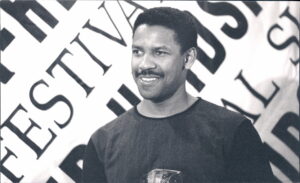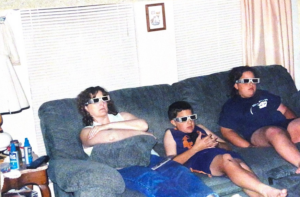Ilyse McKimmie
Mid-October means different things to different people. To people like my son, it means that Halloween, and the requisite belly full of candy is so close they can touch it. To people who live where there are actual seasons (i.e., not here in Los Angeles), it means the leaves are turning all sorts of beautiful hues. To me, it means scripts. Lots and lots of scripts.
We are in the thick of our selection process for the January Screenwriters Lab, and that means that my Feature Film Program colleagues and I are spending most of our waking moments reading screenplays submitted to us by filmmakers from all over the country, as well as many far-flung countries across the world.
The process is long, often exhausting, but also educative, inspiring, and occasionally exhilarating. There are so many stories out there dying to be told—so many voices desperate to be heard—and we have the responsibility to give each its due.
RELATED STORIES
- Here’s What the Sundance Team Is Looking For in Your Artist Application
- 5 Editing Tips from the Sundance Documentary Edit & Story Lab
People often ask me, “What are you looking for?” It’s something that’s so hard to quantify, especially because we want to stay open to the unexpected. Our mandate is discovery, so we look for stories that we haven’t seen before on screen, and fresh cinematic voices whose authenticity and singularity are undeniable.
We hope to find a wide diversity of films and filmmakers, and we mean that in every sense of the word: diversity of storyteller, of genre and content and form, of locale and language, of intent and audience. I always say it’s of particular importance to me that a project has a sense of urgency to it.
That goes for the filmmaker as well — we’re in search of artists with fire in their bellies, who will make their films because they must, and who will employ a rigorous creative process and a relentlessness of spirit to realize their visions.
Although it’s difficult to maintain the necessary brain space to take in and evaluate all these stories, I have to say I love this part of my job the most. Every time I open a script, I’m hoping I’m about to enter a world that will provoke, entertain, or move me.
Of course our process is a subjective one—that’s unavoidable—but I sometimes joke that finding the right script for the lab is like the Supreme Court’s method of identifying pornography: “you know it when you see it.”
I remember when I first read Peter Sollett’s early draft of Raising Victor Vargas, or Andrea Arnold’s screenplay for Red Road, or Cary Fukunaga’s Sin Nombre, and thinking “Aha! We’ve found something special!”
The one thing I wish I could tell every person who sends us a script is this: We recognize that the very act of sending us your work to be judged is an act of courage. We can’t support every project that comes to us—not even all of the ones that we fall a little bit in love with—but we know that all of the scripts we read come to us from a place of passion, of yearning, and striving to be better.
It is the job of many people in the film industry to look for a reason to say “no.” It is my luxury, and privilege, to always read a screenplay looking for a reason to say “yes.”




